Understanding equations Worksheets for Ages 3-9
8 filtered results
-
From - To
Unlock the power of early math skills with our "Understanding Equations Worksheets for Ages 3-9." Designed to make learning fun and engaging, these worksheets help young learners grasp fundamental algebraic concepts through colorful, interactive exercises. Ideal for preschool through early elementary students, our resources break down complex ideas into digestible chunks, fostering critical thinking and problem-solving abilities. With a variety of activities tailored to different age groups, our worksheets ensure a solid foundation in math that will boost confidence and academic success. Equip your child today to become a math whiz tomorrow with Kid’s Academy’s expertly crafted materials!
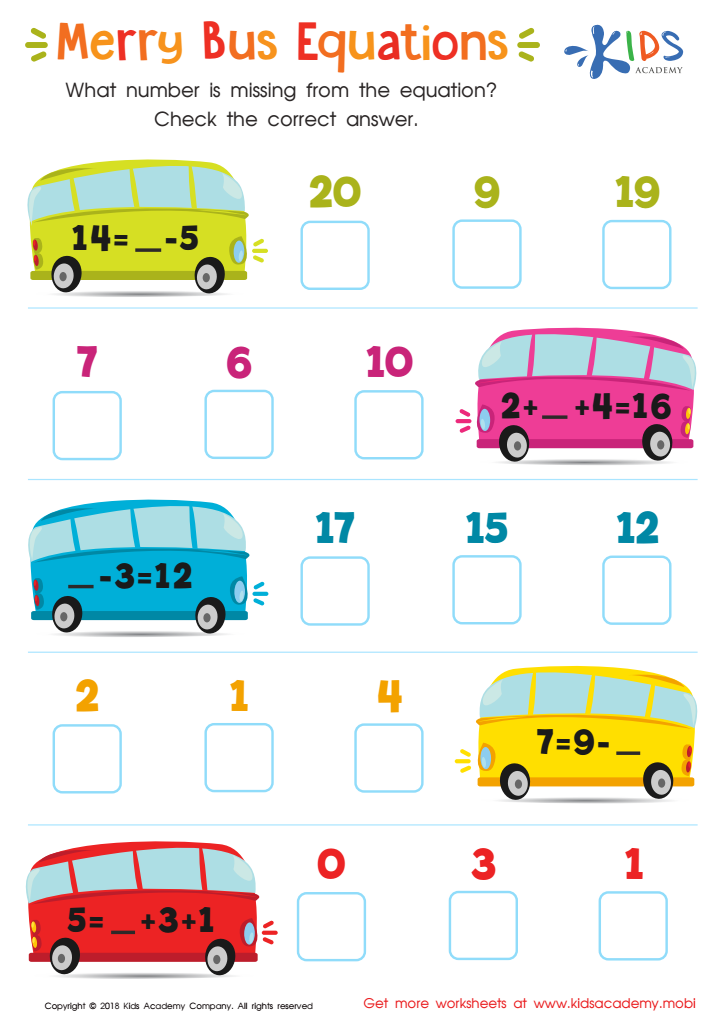

Merry Bus Equations Worksheet
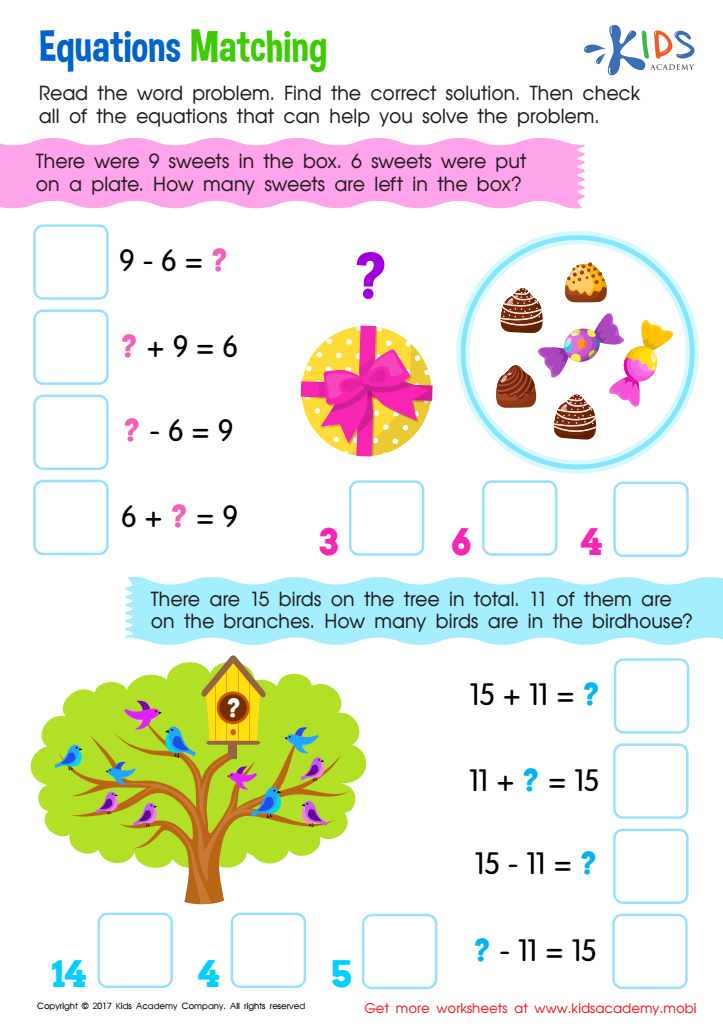

Equations Matching Word Problems Worksheet
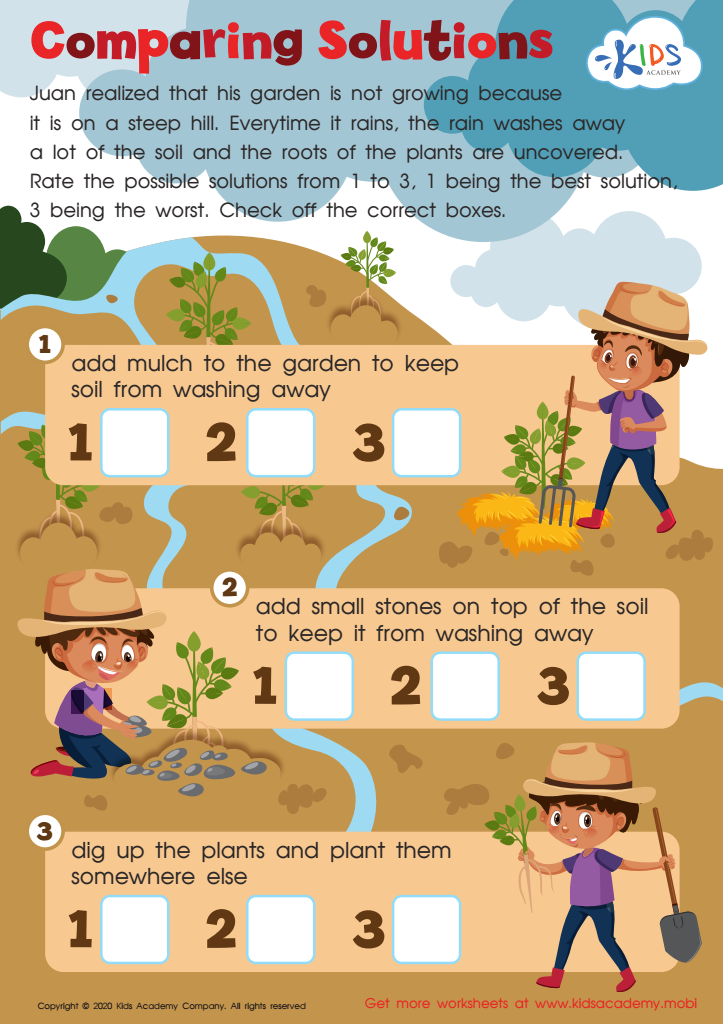

Comparing Solutions Worksheet
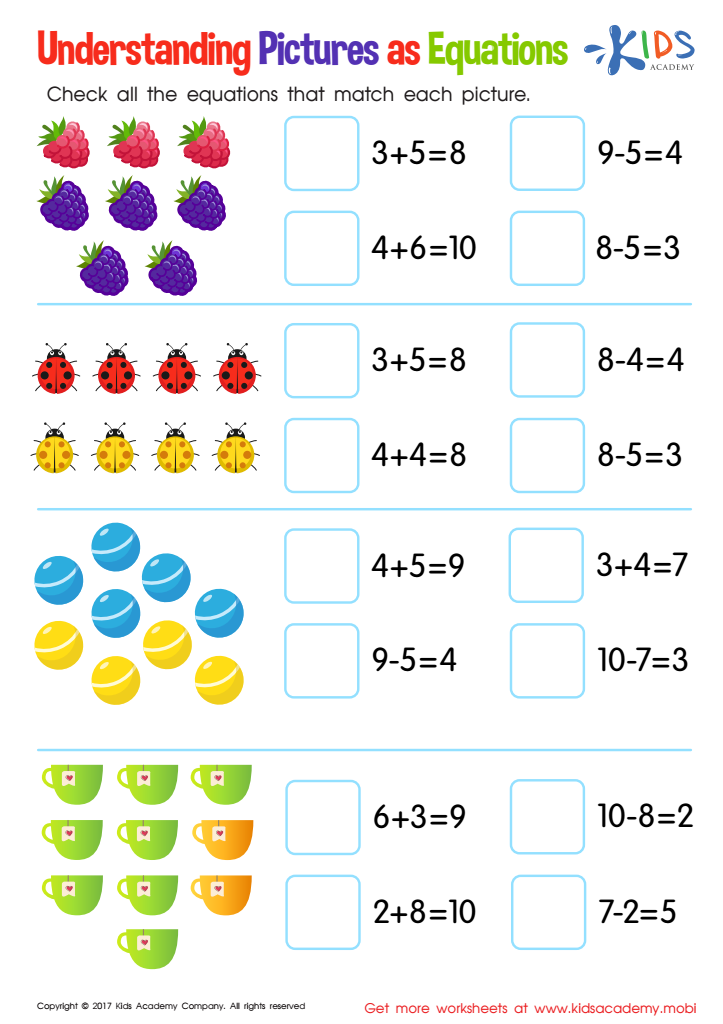

Understanding Pictures as Equations Worksheet
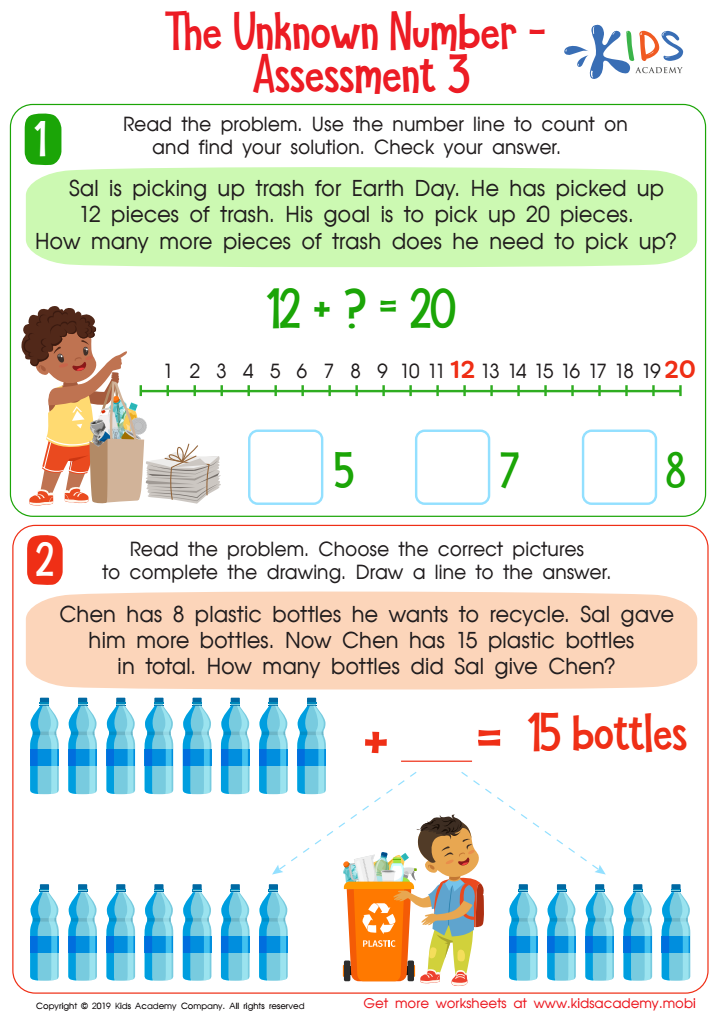

The Unknown Number - Assessment 3 Worksheet
Understanding equations may seem advanced for children aged 3-9, but grasping basic mathematical concepts early lays a strong foundation for future learning. At these ages, introducing simple mathematical ideas in a fun and engaging way can spark children's curiosity and build confidence in their problem-solving skills.
For young learners, equations help develop critical thinking and logical reasoning. For instance, simple addition and subtraction exercises teach how combining or separating groups affects quantities. Basic storytelling with equations, like "If you have 3 apples and pick 2 more, how many do you have now?" makes math relatable and less abstract.
Integrating equations into daily activities nurtures lifelong skills. Understanding patterns and relationships boosts cognitive development and prepares children for more complex subjects. Moreover, it encourages a growth mindset; they learn that mistakes lead to learning opportunities.
Parents and teachers caring about these concepts create an environment where math is viewed positively. This proactive approach lessens future anxieties surrounding math, fostering a positive attitude toward learning in general. Engaging activities like counting games, puzzles, or interactive apps make math enjoyable, benefitting children academically and in everyday life skills. Thus, prioritizing early math education is essential for holistic childhood development and later academic success.
 Assign to My Students
Assign to My Students























